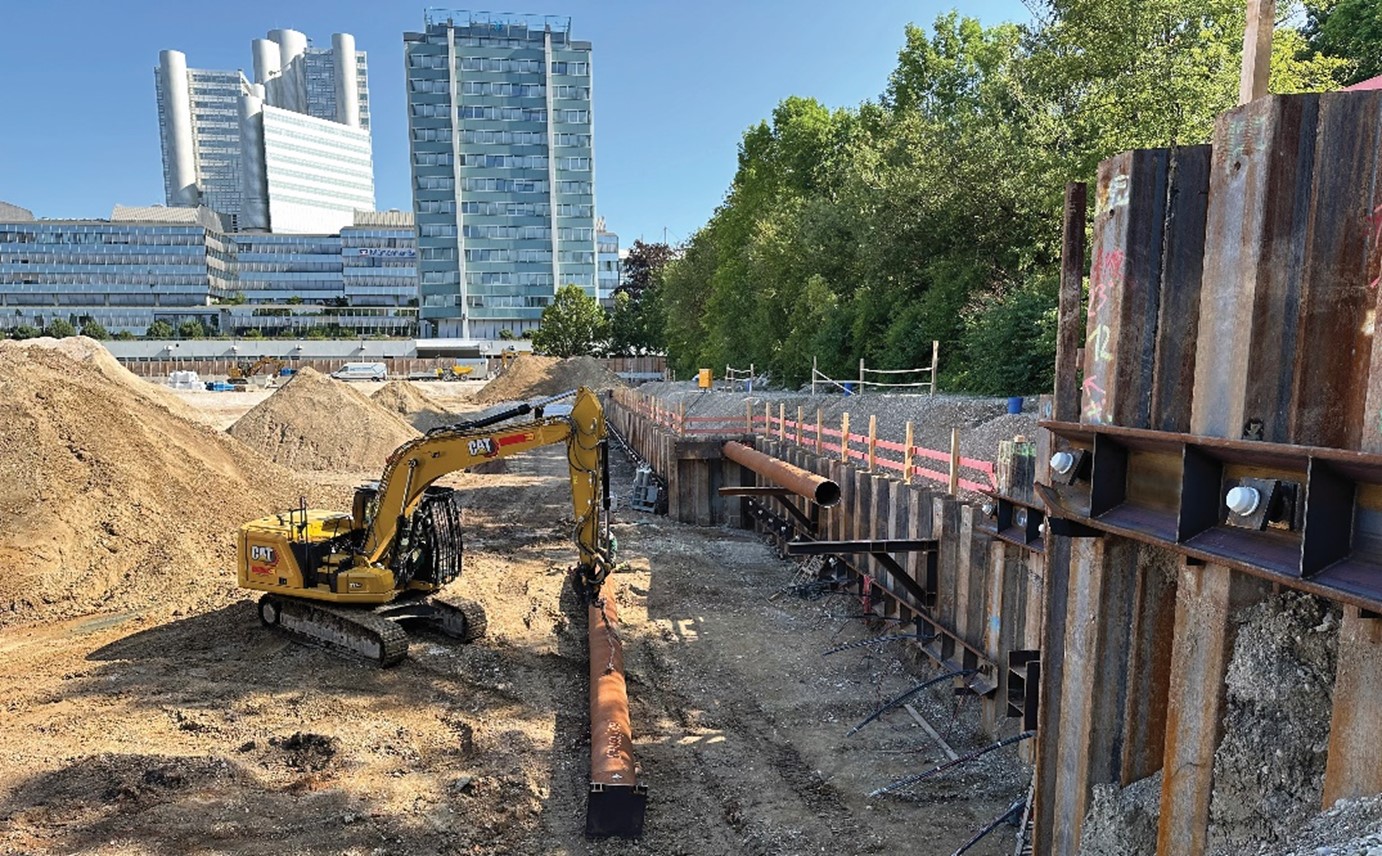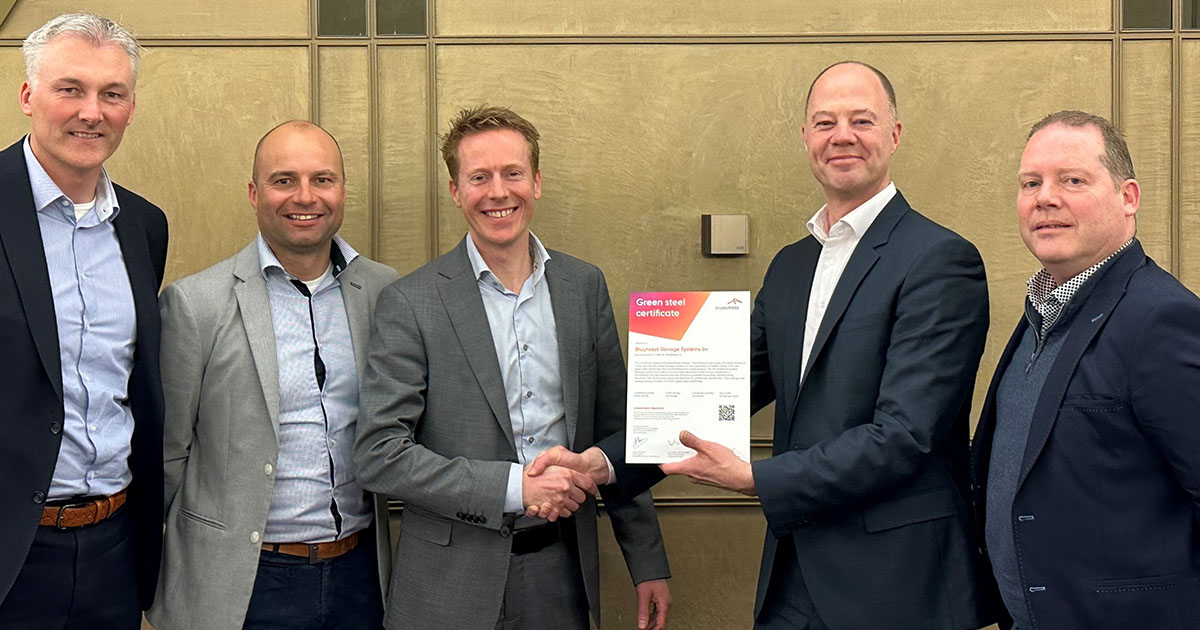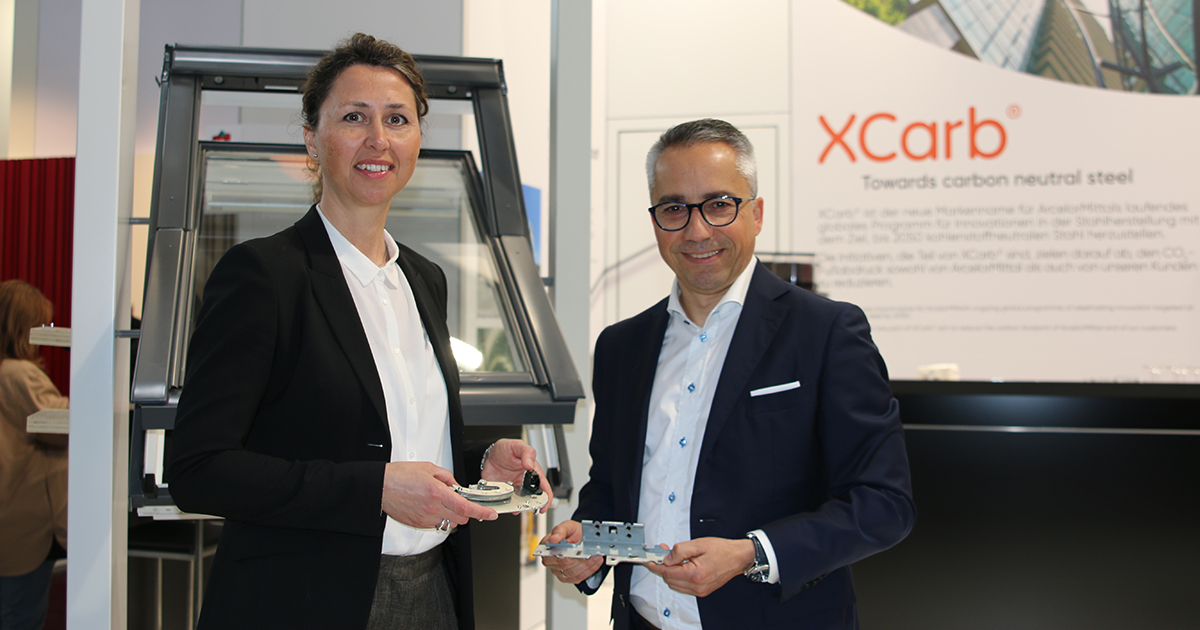On the former Siemens site in Munich (Germany), the new company headquarters of the Bayerische Versorgungskammer (BVK) are being built. ZÜBLIN Spezialtiefbau was commissioned with the turnkey construction of the excavation pit, which impresses with its size and depth. A total of 188,300 m3 of soil will be excavated.
A temporary sheet pile wall was installed for the excavation shoring. The contractor chose ArcelorMittal's PU steel sheet pile sections in the company’s XCarb® recycled and renewably produced range, which have a very low carbon footprint due to their scrap-based production using exclusively electricity from renewable sources (solar and wind).
The overall project aims for a high level of sustainability and has already been awarded the "Sustainable Building Site" certificate by the German Sustainable Building Council (DGNB).

Steel sheet pile wall of the RS76 excavation pit in Munich © ZÜBLIN Spezialtiefbau
Sustainability and DGNB certification: reuse, recycle
The excavation site was awarded the certification for sustainable construction sites by the German Sustainable Building Council. Besides criteria like the extensive noise protection, continued use of demolition materials or tree protection, the sheet piling solution was an important aspect of the sustainability concept.
First of all, the sheet piles are only rented and are thus transferred back to ArcelorMittal's rental warehouse in Germany after use. Temporarily used sheet piles are used between 5 and 10 times before being fully recycled at the end of their life cycle.
The EcoSheetPile® Plus sheet piles used on site are from ArcelorMittal’s XCarb® recycled and renewably produced range. These sheet piles are manufactured in Luxembourg based on 100% recycled scrap and using 100% electricity from renewable sources. ArcelorMittal started to consistently convert all sheet pile rental stores in Germany to EcoSheetPile™ Plus from Q4 2022 on, but as the sheet piles can be reused several times, it will take some time before the changeover is complete.
The use of EcoSheetPile™ Plus sheet piles at the construction site prevented the emission of approximately 1,652 tonnes of CO2e in the production of the steel (product stage, modules A1-A3). This corresponds to a reduction of 85% compared with conventionally produced sheet piles. The repeated use in subsequent construction projects has a further positive impact, as this avoids the production of new steel, thus saving natural resources and energy (module D).
Execution of the project
The excavation project meets the classic challenges of an inner-city jobsite: residential and commercial buildings in the immediate vicinity, special requirements for dust and noise emissions, and challenging logistics. Since the tunnel of the U4 subway line runs directly along the excavation pit, vibrations and deformations are recorded with a monitoring system.
In January 2023, the first special civil engineering work began, and in March the first PU 28-1 sheet piles were delivered. They are rented from ArcelorMittal and, after temporary use in the excavation pit, they are returned to the rental stock where they are reconditioned and later used for other projects.
The sheet piles have a length between 15 m and 22 m, and were installed using a vibratory hammer. The total tonnage is close to 800 tonnes, which leads to a considerable sheet pile installation surface of 4,850 m². The sheet piles were installed from March to May 2023, before the first waling and anchoring operations were carried out.
In its final state, the sheet pile wall will be partially tied back with steel anchors in up to 3 layers. The anchor length is also impressive at up to 60 m. Before removal of the steel sheet piles, the anchors must be stress-relieved, and the anchor heads removed at the appropriate time.

...about XCarb® recycled and renewably produced
